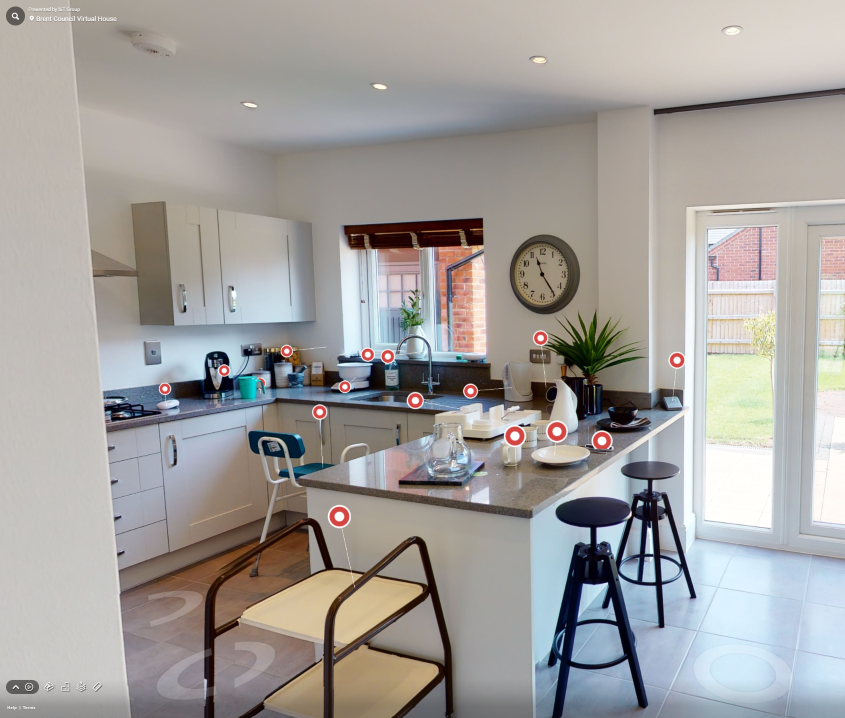If you sometimes feel unsteady on your feet, live with a health condition, or just want extra support with daily life, assistive technology can make everyday tasks easier, reduce the risk of accidents, and give you and your loved ones peace of mind.
Who it can help
Assistive technology is helpful for anyone who:
- lives alone
- has memory problems, like dementia
- has a disability or trouble moving around
- is coming home from hospital
- has long-term health problems like epilepsy, heart disease, or sight/hearing loss
- cares for someone who needs extra support.
Types of assistive technology
There are many products that can help you in your everyday life.
- Personal alarms - These let you call for help if there’s an emergency. You can wear them around your neck or wrist and press a button to speak to a trained operator any time of day or night.
- Hearing and vision aids – Tools to help you see and hear better, like hearing aids, talking clocks, or magnifiers.
- Memory aids – Helpful items for people with memory loss —like day clocks, talking pill reminders, or smartphone apps with reminders.
- Smart home devices – voice-activated lights, video doorbells, or heating you can control with your phone or your voice.
- Environmental controls – These help you control your TV, lights, or curtains using a switch or your voice.
- GPS tracking devices – Great for people who may wander or get lost—like those living with dementia. These can be worn as a pendant or watch and help loved ones know where you are.
- Telecare – It uses smart sensors placed around your home to detect danger and call for help automatically—even if you can’t press a button.
Choosing the right solutions for you
Assistive technology can be purchased from a range of suppliers, some offering a broad range of products and others specialising in products to meet specific needs.
AskSARA
If you think assistive technology might help you or someone you care for, visit AskSARA our online guided advice tool.
It is designed to help you find useful information about devices that could make daily living activities easier.You answer a few questions and then it gives you advice on which products or devices might suit your needs. It also suggests local suppliers and explains how each item works.
